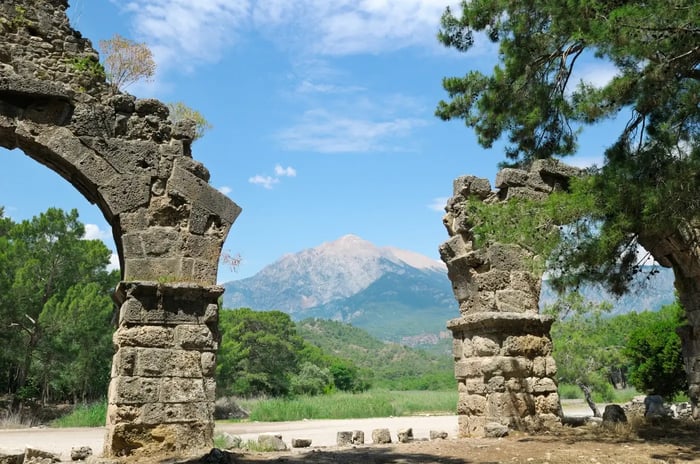Even as a child, Hermes was a trickster. Always one step ahead of his peers (and usually, his elders), Hermes loved to test boundaries. And since the boy was cunning and clever, he rarely got caught.
Except for that one time. You know, when he tried to fool his half-brother, Apollo.
You see, Hermes had just woken from a nap, and he was hungry. Like, really hungry. Hermes asked his grumbling stomach what it craved, and it responded, steak.
But not just any steak would do, because a divine child needs a divine meal. So, instead of hassling the cook for some leftovers, Hermes walked out the door and headed towards the Thessalian pastures.
Inside his head, the plan sounded simple: Locate the fifty head of cattle owned by Apollo and then, borrow a few. Hermes figured that he’d harvest two cows, have a nice meal, a few good laughs, and Apollo would be none the wiser.
But after devouring the first cow, Hermes came up with an even better plan.
Instead of stealing two cows, why not take the entire herd?
Now, Hermes had no intention of eating all fifty cows; he just wanted to hide them. For fun. He was a trickster, after all.
Hermes was giddy with excitement. What a riot it would be to watch Apollo track down his precious herd! Especially with the antics Hermes had up his sleeve…
Hermes knew Apollo would try to find his cows by following their tracks, so the clever boy fastened himself a pair of common wicker sandals. Then, he led the cows into the mountains, backwards.
To this day, nobody knows how Hermes managed to drive fifty cows up a mountain backwards, but that’s not the point. With the cows out of sight, Hermes returned home, hopped in his crib, and went to sleep. (Did I forget to mention Hermes was just a toddler when this happened?)
The very next morning, as Apollo began his journey across the sky, he immediately spotted his empty fields. The god was worried and confused, looking everywhere for his beloved heifers. To Hermes’ delight, the backward tracks had thoroughly baffled the solar god.
But let’s not forget that Apollo was the god of prophecy. He ruled the skies alongside his sister, Artemis – the moon, and between the two of them, they saw everything.
The ruse was up.
Child or not, Apollo knew Hermes was guilty. He dragged the boy to Mt. Olympus to face the wrath of Zeus, but to everyone’s surprise, Zeus laughed. That’s right, the god of gods wasn’t the least bit angry. In fact, he found the whole thing amusing. He was so delighted by Hermes’ ability to fool the sun that he offered the boy a new home on Mt. Olympus.
Zeus did, however, request that Hermes return Apollo’s cattle, which he did. And to smooth things over with his half-brother, Hermes gifted Apollo his beloved lyre.
Today, there is no bad blood between Apollo and Hermes.
Hermes is a trickster. He throws the wool over our eyes. He reminds us to question what we see, hear, and ‘know’ to be true. He tests us.
Being the patron of tricksters is not a negative trait, per se. The way Hermes sees it – he’s just the messenger.









